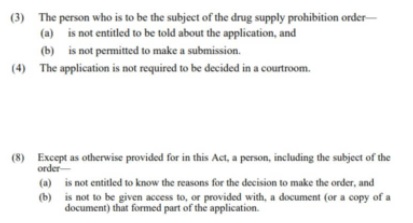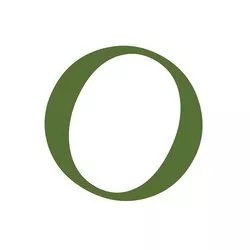- within Media, Telecoms, IT, Entertainment and Law Department Performance topic(s)
- with readers working within the Securities & Investment industries
The NSW Police have implemented controversial drug laws which advocates say will infringe on civil liberties. The Drug Supply Prohibition Order (DSPO) targets anyone who has been convicted of drug supply (including deemed supply) in the last 10 years, allowing police to stop and search them at any time.
The DSPO scheme will initially roll out across Bankstown, Dubbo, Hunter Valley and Coffs Harbour.
Police can target people without explanation
The bill allows any officer:
- to detain and search a target without a warrant,
- enter and search their premises, or
- enter and search their vehicle that they own or control.
Police can only execute the powers can to ascertain whether a target has involvement in drug crime. However, this discretion is so large it's hard to see it actually being adhered to.
To become a target of this scheme, you have to be over 18 and have a conviction for a serious drug offence within the last 10 years. Unlike a Firearms Prohibition Order, to be a target a police officer has to apply to a magistrate - rather than the police commissioner. However, the target of the order doesn't need to be told about the order and is not allowed to make submissions.

Excerpts from the NSW Drug Supply Prohibition Order Pilot Scheme
Bill 2020
Targeting disadvantaged and vulnerable people
The scheme is likely to unfairly target those from lower-socio-economic backgrounds.
The scheme will do little to actually address addiction issues and underlying mental health problems amongst low-level suppliers and users.
It's far more likely that the scheme will result in counter-rehabilitation.
NSW Law Society president Joanne van der Plaat tole the ABC the changes would do "little to solve the problem".
"Police already have the power to apply for search warrants in a closed court. The scheme lacks sufficient oversight to ensure it operates fairly," Ms van der Plaat said.
"The scheme will do nothing to aid rehabilitation and may well do little to hinder high level drug dealers either."
Low bar for getting onto the scheme
While the Government promotes this legislation as addressing gangland crime, police will be able to target low-level suppliers and addicts.
"Deemed supply" will be included as a serious drug offence. This means someone who was caught with over what the Court considers a 'personal' amount, could end up facing endless police harassment.
For example, the possession of 5-6 MDMA capsules at a festival qualifies as 'deemed supply'.
Greens MP Sue Higginson, who is also a lawyer, said vulnerable members of the community could suffer adverse impacts from the scheme.
"This can mean a young person with a pocket full of pills going to a music festival . could be subject to a search without a warrant in the next 10 years," Ms Higginson said.
Noting the over-incarceration of First Nations people in the criminal justice system, it's very likely these laws will disproportionately affect Aboriginal people.
What is a serious drug offence?
What is a 'serious drug offence? A serious drug offence includes the following types of drug offences:
- Possession of tablet press or drug encapsulator
- Cultivate, supply, or knowingly take part in cultivating prohibited plant (of at least a commercial quantity)
- Manufacture, or produce, or knowingly take part in the manufacture or production of a prohibited drug (of at least a commercial quantity); this includes exposing a child to that manufacture or production process, or to substances being stored for use in that manufacture or production process.
- Possession of a precursor or drug manufacture apparatus intended to be used in the manufacture or production of a prohibited drug.
- Possession of a precursor.
- Supply prohibited drugs on an ongoing basis
- Organise, conduct, or assists in organising or conducting a drug premises knowing a child has access to the premises and as a result is exposed to a drug supply process.
- A second or subsequent offence of organising or conducting, or assisting in organising or conducting a drug premises.
- Cultivate or knowingly take part in cultivating a prohibited plant, or supply or knowingly take part in the supply of a prohibited plant.
- Cultivate by enhances indoor means, or knowingly take part in same by enhanced indoor means of at least a small quantity and less than a commercial quantity of the prohibited plants; or cultivate or knowingly takes part in cultivation of a prohibited plant for a commercial purpose.
- Manufacture or produce, or knowingly takes part in manufacturing or producing a prohibited drug; or doing this while exposing a child to that manufacturing or production process, or to substances being stored for use in that process.
- Supply or knowingly take part in the supply of a prohibited drug; or doing this to a person under the age of 16.
- Supply or knowingly take part in the supply of a prohibited drug other than cannabis leaf (at least a commercial quantity); or doing this to a person under the age of 16.
- Procuring a person under the age of 16 to supply, or to take part in the supply of a prohibited drug (other than cannabis leaf).
- Conspiring with another person to commit a drug offence outlined above.
No evidence to support this scheme will actually tackle drug issues
The ongoing 'war on drugs' has proved fruitless in its fear-mongering campaign.
From 2015 to 2020, there was no region in NSW where drug use decreased. In regions such as Ryde in Sydney, the Riverina and Orana, ice use went up roughly 15% in the last five years. In Sutherland in Sydney's south, drug use other than that of ice went up roughly 37%.
Former ice user Paul Viney told the ABC that the criminal justice system does nothing for those involved in drugs.
"Jail was basically a waste of time," he told the ABC.
"It is a complete waste of life. There's nothing you're given to do that will help you in the future."
Paul told the ABC that drugs were available inside prisons at any time.
Infringement of civil liberties
The obsession with the ineffective war on drugs is slowly eroding the civil liberties of citizens.
From the strip-searching of children at music festivals to police assaults and unlawful arrests, the NSW Government has done nothing to secure the civil rights of citizens nor protect the community from harmful drugs.
Constant surveillance and inevitable searches not only encroach on the person's civil liberties but their emotional welfare too.
In 2015, a report by the NSW Ombudsman on the similar Firearms Protection Order found that a whopping 642 searches took place with no result. Only 8 people were found with other illegal items irrelevant to the scheme and 18% had no history of any kind of a criminal conviction.
These types of orders, in practice, often only affect the low-level users and dealers and are unlikely to have any impact on countering the drug trade.
On balance, this scheme will be more detrimental to the community than helpful


